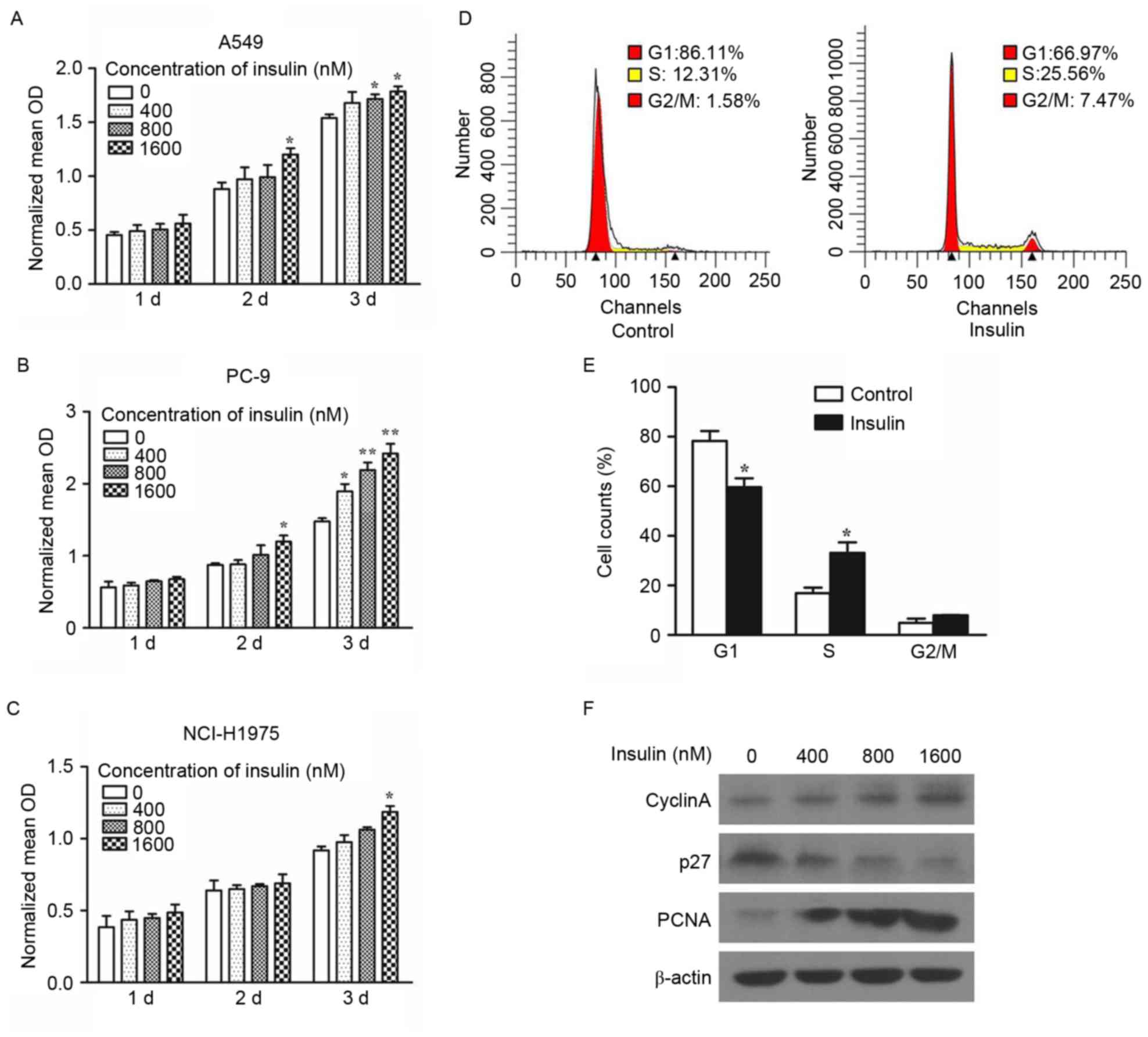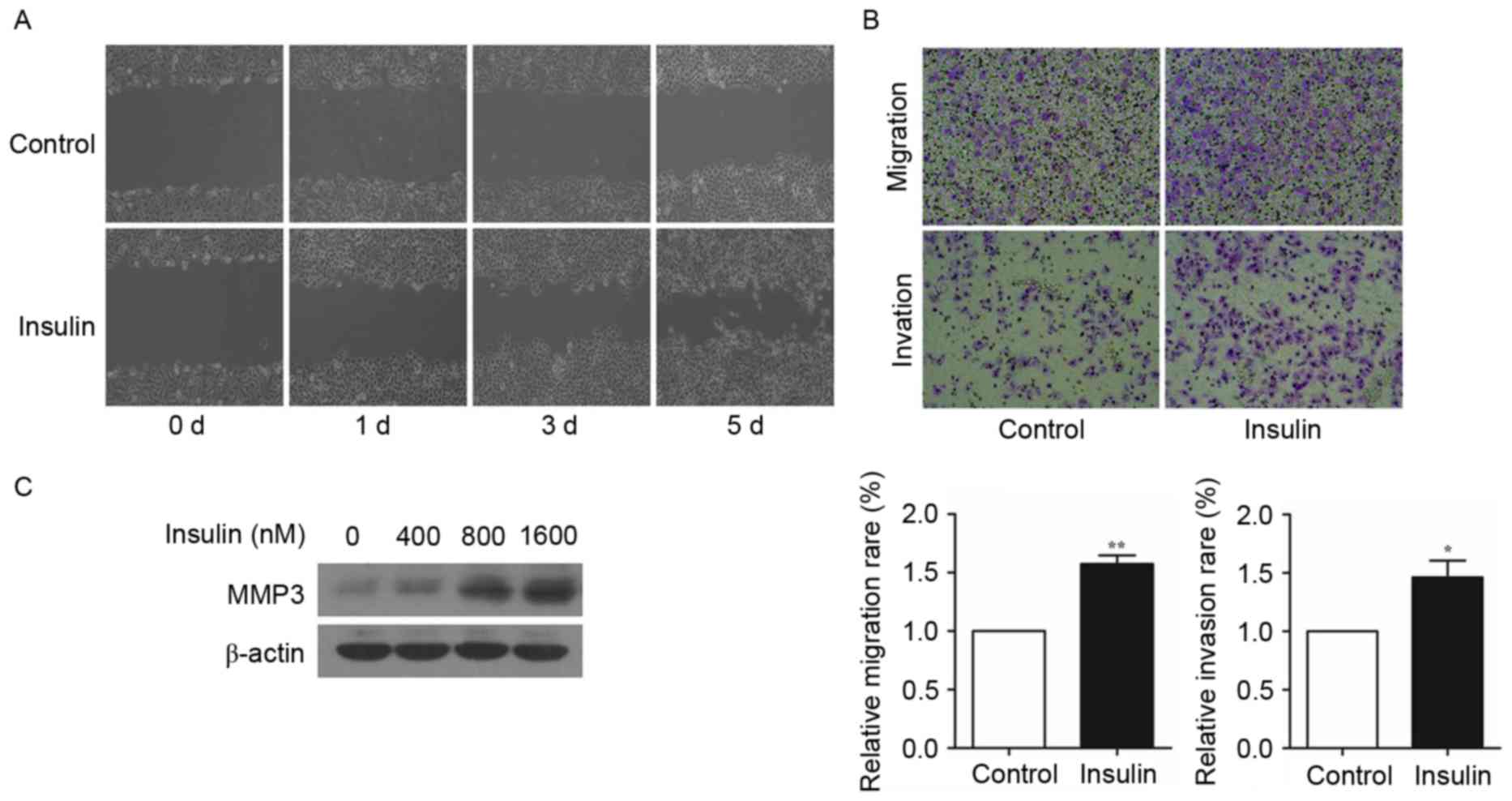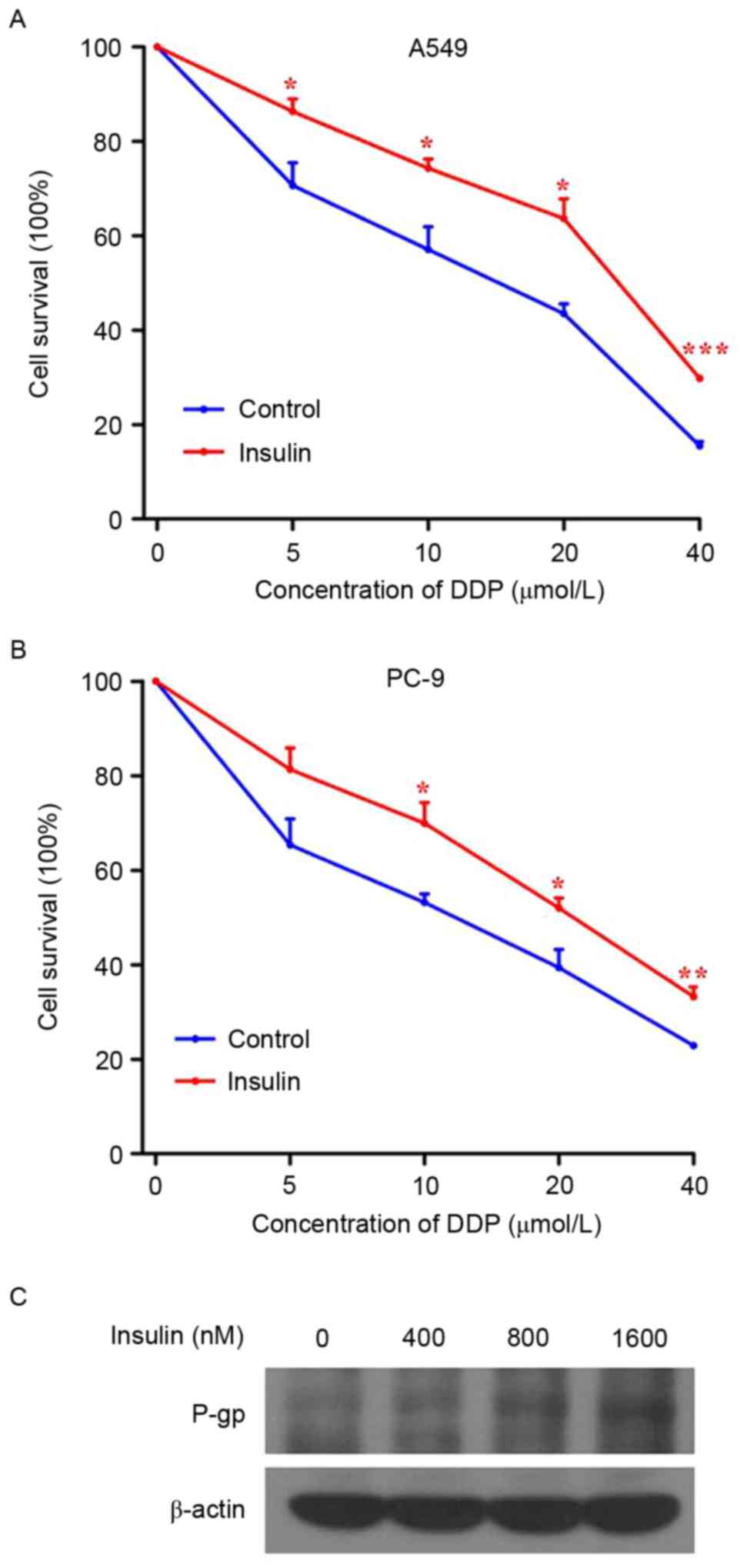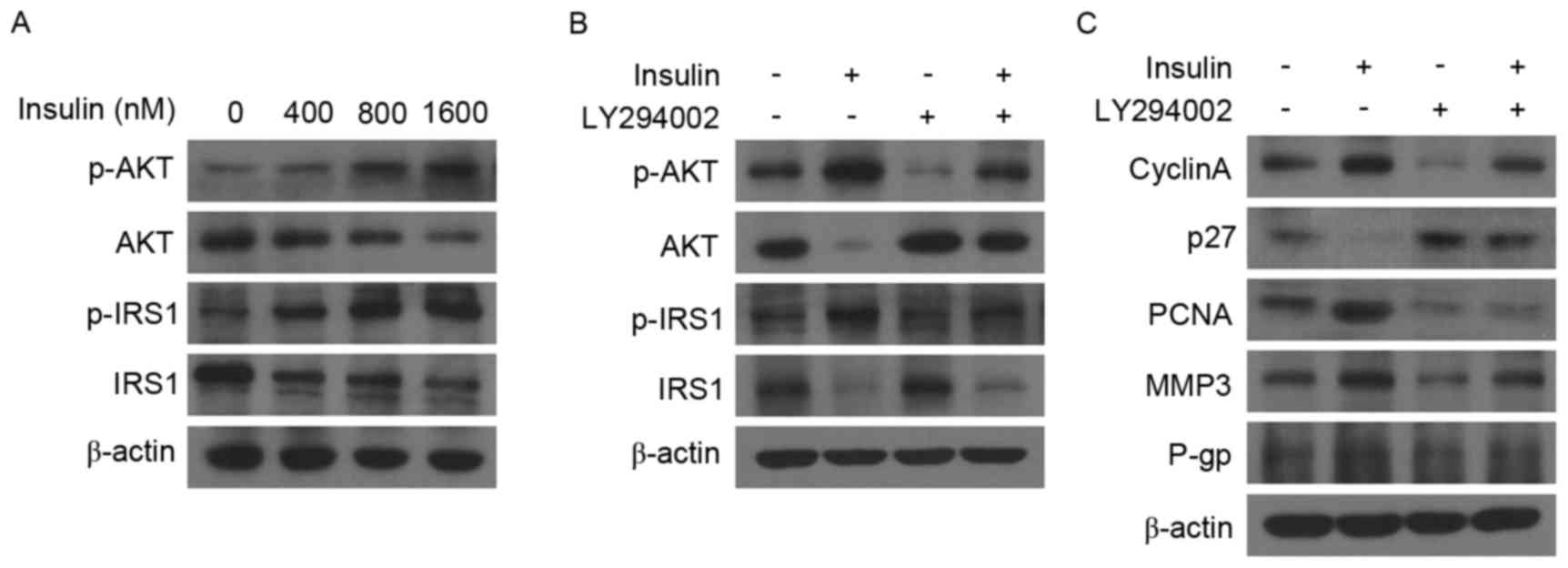|
1
|
Siegel RL, Miller KD and Jemal A: Cancer
statistics, 2015. CA Cancer J Clin. 65:5–29. 2015. View Article : Google Scholar : PubMed/NCBI
|
|
2
|
Herbst RS, Heymach JV and Lippman SM: Lung
cancer. N Eng J Med. 359:1367–1380. 2008. View Article : Google Scholar
|
|
3
|
Cappuzzo F, Ciuleanu T, Stelmakh L,
Cicenas S, Szczésna A, Juhász E, Esteban E, Molinier O, Brugger W,
Melezinek I, et al: Erlotinib as maintenance treatment in advanced
non-small-cell lung cancer: A multicentre, randomised,
placebo-controlled phase 3 study. Lancet Oncol. 11:521–529. 2010.
View Article : Google Scholar : PubMed/NCBI
|
|
4
|
Spiro SG and Silvestri GA: One hundred
years of lung cancer. Am J Res Crit Care Med. 172:523–529. 2005.
View Article : Google Scholar
|
|
5
|
van Zandwijk N and Fong KM: Update in lung
cancer: Prologue to a modern review series. Respirology.
20:183–184. 2015. View Article : Google Scholar : PubMed/NCBI
|
|
6
|
Wolin KY, Carson K and Colditz GA: Obesity
and cancer. Oncologist. 15:556–565. 2010. View Article : Google Scholar : PubMed/NCBI
|
|
7
|
Renehan AG, Tyson M, Egger M, Heller RF
and Zwahlen M: Body-mass index and incidence of cancer: A
systematic review and meta-analysis of prospective observational
studies. Lancet. 371:569–578. 2008. View Article : Google Scholar : PubMed/NCBI
|
|
8
|
Mehran AE, Templeman NM, Brigidi GS, Lim
GE, Chu KY, Hu X, Botezelli JD, Asadi A, Hoffman BG, Kieffer TJ, et
al: Hyperinsulinemia drives diet-induced obesity independently of
brain insulin production. Cell Metab. 16:723–737. 2012. View Article : Google Scholar : PubMed/NCBI
|
|
9
|
Tseng CH: Use of insulin and mortality
from breast cancer among taiwanese women with diabetes. J Diabetes
Res. 2015:6787562015. View Article : Google Scholar : PubMed/NCBI
|
|
10
|
Tseng CH: Diabetes, insulin use, smoking,
and pancreatic cancer mortality in Taiwan. Acta Diabetol.
50:879–886. 2013. View Article : Google Scholar : PubMed/NCBI
|
|
11
|
Wang L, Cai S, Teng Z, Zhao X, Chen X and
Bai X: Insulin therapy contributes to the increased risk of
colorectal cancer in diabetes patients: A meta-analysis. Diagn
Pathol. 8:1802013. View Article : Google Scholar : PubMed/NCBI
|
|
12
|
Tseng CH: Insulin use and smoking jointly
increase the risk of bladder cancer mortality in patients with type
2 diabetes. Clin Genitourin Cancer. 11:508–514. 2013. View Article : Google Scholar : PubMed/NCBI
|
|
13
|
Chan MT, Lim GE, Skovsø S, Yang YH,
Albrecht T, Alejandro EU, Hoesli CA, Piret JM, Warnock GL and
Johnson JD: Effects of insulin on human pancreatic cancer
progression modeled in vitro. BMC Cancer. 14:8142014. View Article : Google Scholar : PubMed/NCBI
|
|
14
|
Tomas NM, Masur K, Piecha JC, Niggemann B
and Zänker KS: Akt and phospholipase Cgamma are involved in the
regulation of growth and migration of MDA-MB-468 breast cancer and
SW480 colon cancer cells when cultured with diabetogenic levels of
glucose and insulin. BMC Res Notes. 5:2142012. View Article : Google Scholar : PubMed/NCBI
|
|
15
|
Wei Z, Liang L, Junsong L, Rui C, Shuai C,
Guanglin Q, Shicai H, Zexing W, Jin W, Xiangming C and Shufeng W:
The impact of insulin on chemotherapeutic sensitivity to
5-fluorouracil in gastric cancer cell lines SGC7901, MKN45 and
MKN28. J Exp Clin Cancer Res. 34:642015. View Article : Google Scholar : PubMed/NCBI
|
|
16
|
Zhang C, Lan T, Hou J, Li J, Fang R, Yang
Z, Zhang M, Liu J and Liu B: NOX4 promotes non-small cell lung
cancer cell proliferation and metastasis through positive feedback
regulation of PI3K/Akt signaling. Oncotarget. 5:4392–4405. 2014.
View Article : Google Scholar : PubMed/NCBI
|
|
17
|
Sarker D, Reid AH, Yap TA and de Bono JS:
Targeting the PI3K/AKT pathway for the treatment of prostate
cancer. Clin Cancer Res. 15:4799–4805. 2009. View Article : Google Scholar : PubMed/NCBI
|
|
18
|
Safdari Y, Khalili M, Ebrahimzadeh MA,
Yazdani Y and Farajnia S: Natural inhibitors of PI3K/AKT signaling
in breast cancer: Emphasis on newly-discovered molecular mechanisms
of action. Pharmacol Res. 93:1–10. 2015. View Article : Google Scholar : PubMed/NCBI
|
|
19
|
Martini M, De Santis MC, Braccini L,
Gulluni F and Hirsch E: PI3K/AKT signaling pathway and cancer: An
updated review. Ann Med. 46:372–383. 2014. View Article : Google Scholar : PubMed/NCBI
|
|
20
|
Huang GL, Luo Q, Rui G, Zhang W, Zhang QY,
Chen QX and Shen DY: Oncogenic activity of retinoic acid receptor γ
is exhibited through activation of the Akt/NF-κB and Wnt/β-catenin
pathways in cholangiocarcinoma. Mol Cell Biol. 33:3416–3425. 2013.
View Article : Google Scholar : PubMed/NCBI
|
|
21
|
Liu S, Li Y, Lin T, Fan X, Liang Y and
Heemann U: High dose human insulin and insulin glargine promote T24
bladder cancer cell proliferation via PI3K-independent activation
of Akt. Diabetes Res Clin Pract. 91:177–182. 2011. View Article : Google Scholar : PubMed/NCBI
|
|
22
|
Kessler II: Cancer and diabetes mellitus.
A review of the literature. J Chronic Dis. 23:579–600. 1971.
View Article : Google Scholar : PubMed/NCBI
|
|
23
|
Home P: Insulin therapy and cancer.
Diabetes Care. 36 Suppl 2:S240–S244. 2013. View Article : Google Scholar : PubMed/NCBI
|
|
24
|
Mattarocci S, Abbruzzese C, Mileo AM,
Visca P, Antoniani B, Alessandrini G, Facciolo F, Felsani A,
Radulescu RT and Paggi MG: Intracellular presence of insulin and
its phosphorylated receptor in non-small cell lung cancer. J Cell
Physiol. 221:766–770. 2009. View Article : Google Scholar : PubMed/NCBI
|
|
25
|
Kling J: Inhaled insulin's last gasp? Nat
Biotechnol. 26:479–480. 2008. View Article : Google Scholar : PubMed/NCBI
|
|
26
|
White PB, True EM, Ziegler KM, Wang SS,
Swartz-Basile DA, Pitt HA and Zyromski NJ: Insulin, leptin, and
tumoral adipocytes promote murine pancreatic cancer growth. J
Gastrointest Surg. 14:1888–1894. 2010. View Article : Google Scholar : PubMed/NCBI
|
|
27
|
Chappell J, Leitner JW, Solomon S,
Golovchenko I, Goalstone ML and Draznin B: Effect of insulin on
cell cycle progression in MCF-7 breast cancer cells. Direct and
potentiating influence. J Biol Chem. 276:38023–38028.
2001.PubMed/NCBI
|
|
28
|
Iqbal MA, Siddiqui FA, Gupta V,
Chattopadhyay S, Gopinath P, Kumar B, Manvati S, Chaman N and
Bamezai RN: Insulin enhances metabolic capacities of cancer cells
by dual regulation of glycolytic enzyme pyruvate kinase M2. Mol
Cancer. 12:722013. View Article : Google Scholar : PubMed/NCBI
|
|
29
|
Kim JS, Kim ES, Liu D, Lee JJ, Solis L,
Behrens C, Lippman SM, Hong WK, Wistuba II and Lee HY: Prognostic
impact of insulin receptor expression on survival of patients with
nonsmall cell lung cancer. Cancer. 118:2454–2465. 2012. View Article : Google Scholar : PubMed/NCBI
|
|
30
|
Han CH, Cho JY, Moon JT, Kim HJ, Kim SK,
Shin DH, Chang J, Ahn CM, Kim SK and Chang YS: Clinical
significance of insulin receptor substrate-I down-regulation in
non-small cell lung cancer. Oncol Rep. 16:1205–1210.
2006.PubMed/NCBI
|


















